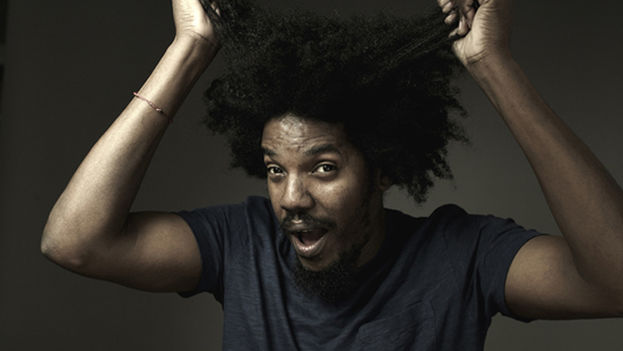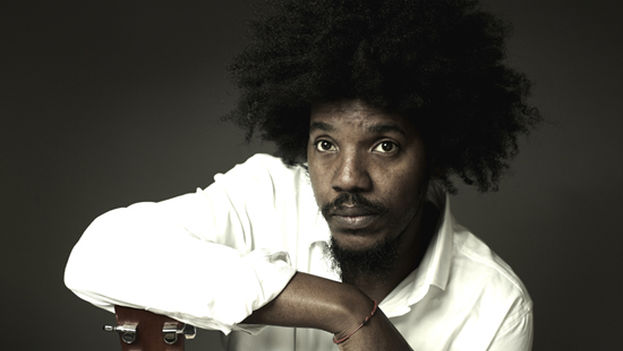
![]() 14ymedio, Luz Escobar, Havana, 31 August 2016 — Passing through Havana to record a CD in the EGREM studios in Miramar, along with several singers, the troubadour Roland (Roly) Berrio spoke with 14ymedio about the beginnings of his career and health of Trova in Cuba.
14ymedio, Luz Escobar, Havana, 31 August 2016 — Passing through Havana to record a CD in the EGREM studios in Miramar, along with several singers, the troubadour Roland (Roly) Berrio spoke with 14ymedio about the beginnings of his career and health of Trova in Cuba.
Luz Escobar. Together with other troubadours you are currently working on an album that pays tribute to La Trovuntivitis project. How did that project arise?
Roly Berrio. The city of Santa Clara was left quite bereft in terms of music in the hard years of the Special Period, so it all began with the desires of students to do something on a stage with many shortcomings. So at that time there was a flourishing of projects, peñas – weekly shows – and the troubadours.
We started singing in several places in the city until one night El Mejunje opened its doors for us alone, we were five or six troubadours: Diego Gutiérrez, Alain Garrido and the Enserie trio. We are all included in La Trovuntivitis, which is a generic space for our own music, for music that has certain pretensions, social, aesthetic, risky. We have been singing there for 20 years now.
Escobar. In other provinces troubadours do not have their own spaces.
Berrio. Santa Clara has had the good fortune to have leaders, both political and cultural, who have given a lot of freedom and support to the projects of young people. Without much hesitation, without fear. This has helped this movement to exist, but also in fine arts, in literature and in almost all its manifestations. Unlike in other provinces, where there are musicians and artists with talent, but when it comes to joining together and having institutional support it has been difficult to create a movement.
Of course, we also had a very bad stage in terms of political and cultural leadership. That led to a falling-out and artists rebelling. It was a moment of rupture.
Escobar. What role did Ramón Silverio play in the birth of La Trovuntivitis?
Berrio. Everything. Like our Bartolome de las Casas. He has been the doer, an example of freedom and inclusion. A project he presents, he understood the project as his own.
Escobar. What was the effect on you of your time with the Enserie trio?
Berrio. The trio was part of my beginning, my musical and intellectual training. I continue to compose songs in three parts. I bring three ways of addressing the theme that I’m dealing with, three ways of looking at it, three ways of presenting the song.
Enserie was unusual because the composition was made among three people, the lyrics and music. It was a kind of workshop, we didn’t know the rules, it was entirely empirical. We wanted to give strength to a song that experienced the most critical years, in the nineties the media in the country – and therefore much of the public – completely dismissed the singer-songwriter.
Escobar. Are you planning a concert in the coming months?
Berrio. On September 10 I will appear at the Museum of Fine Arts with themes from an upcoming album of single songs. It still has no name and I am going to record it France.

Escobar. Do you feel that you are a chronicler of reality?
Berrio. Art can achieve awareness without having to dictate a sentence that says what you have to do. Some of the rejections to the music of the Nueva Trova movement were, in my opinion, very judgmental. There was a lot of “thou shalt do this” or “you have to be the New Man.”
My song seeks pick up the pieces that were broken and that are still somewhat scattered in the society, in the country.
Escobar. How do you assess the health of Trova?
Berrio. Trova has not had, beyond the moments it had in the eighties, much impact on the broader plane. What happened is that people like an individual of some genre, and not the genre as a whole. In the eighties, whether or not you knew the person who was going to sing, if Trova was announced the venues were full and people came to know there was a curiosity that then began to disappear.
